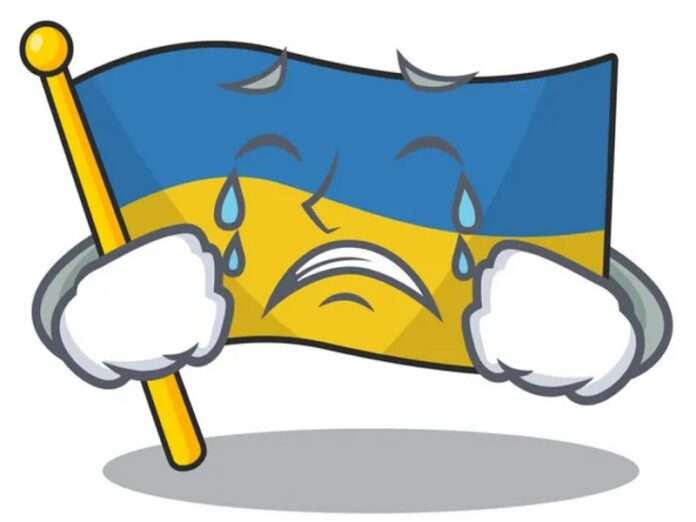Ukraine celebrated its 33rd Independence Day on Saturday, during which time Zelensky made a hyper-aggressive speech boasting about his forces’ ongoing invasion of Kursk. So much has happened in the over 900 days since the latest phase of this already decade-long conflict began that many have forgotten how everything got to this point. The one-third of a century since Ukraine declared its independence from the USSR is therefore a fitting time to share some reflections about this country:
———-
1. A Country That Grew Out Of A Concept
“Ukraine” means “borderland”, but it used to be the heartland of Kievan Rus. It was only after that civilization’s destruction by the Mongols, the Grand Duchy of Lithuania’s subsequent control over its central-western remnants, and then that polity’s merger with Poland that the borderland concept began to take shape once what’s nowadays Ukraine became the frontier between their Commonwealth and Russia. This centuries-long process led to the creation of a distinct identity and eventually a country.
2. National Identity Remains Contentious
Two schools of thought arose with regards to national identity: the radical one obsesses over their differences with Russia and fiercely hates it while the moderate one is more focused on socio-economic development and won’t rule out cooperation with Russia. The struggle between these two has defined the Ukrainian national movement since its inception. The radicals are predominant right now, but they’re nervous that the moderates might make a comeback, ergo why they continue persecuting them.
3. Socio-Economic Collapse Was Avoidable
Ukraine had over 50 million people at the time of independence and a rich Soviet industrial inheritance that was then fueled by generously subsidized Russian resources, all of which could have turned it into one of the most prosperous countries in Europe, but the opportunity was squandered. Its population is now estimated to be 36 million people and its non-stop deindustrialization made it the poorest country in Europe. All credible forecasts suggest that Ukraine’s socio-economic collapse will further worsen.
4. Incorrigible Corruption Killed The Country
The abovementioned collapse was caused by Ukraine’s incorrigible corruption since competing oligarchic cliques cared more about their personal economic interests than the nation’s objective ones. Different ones came to control different Ukrainian leaders, and with time, these cliques and their politicians came to be influenced – and in some cases outright controlled – by foreign forces too. Widespread awareness of this systemic problem gave rise to well-intentioned protest movements that were also later co-opted.
5. Color Revolutions Were Never The Solution
Many Ukrainians sincerely thought that the Color Revolutions of 2004-2005 and 2013-2014 would liberate their country from corrupt oligarchs and finally give them the future they deserved since 1991, but that was never the solution since these were really weaponized protests orchestrated by the West. The whole point was to co-opt the public’s anger by capitalizing upon legitimate grievances in order to aid their allied oligarchic factions in a coup de grace against Russia’s as part of a geopolitical power play.
6. Hegemonic Goals Predetermined The Proxy War
“EuroMaidan” was a ploy to pivot Ukraine towards the US at Russia’s expense by turning it into NATO’s easternmost vanguard. This hegemonic goal aimed to coerce Russia into a series of incessant concessions that would ultimately neutralize its sovereignty and was influenced by Brzezinski’s precept that Russia ceases to be an “empire” without Ukraine in its sphere of influence. The largest conflict in Europe since World War II would never have broken out had it not been for the US’ pursuit of this.
7. From Faux Democracy To Actual Dictatorship
Ukraine was a faux democracy before “EuroMaidan”, but it wasn’t until that Western-backed Color Revolution that it finally became a dictatorship. Additionally, the US ensured that the radical school of thought on Ukrainian national identity became the country’s de facto ideology, which coupled with the newly imposed dictatorship to prevent their Russian-friendly moderate rivals from ever returning to power. Ukraine is now much less politically free today than it was a decade ago.
8. Burning Europe’s Land Bridge To China
Regional military and domestic political changes in post-“EuroMaidan” Ukraine were also accompanied by broader geo-economic ones with regard to ruining the possibility of Ukraine ever functioning as Europe’s bridge to China. Western-encouraged Russian-Ukrainian tensions precluded the possibility of them cooperating along the “Eurasian Land Bridge”, thus advancing the US’ grand strategic goal of “decoupling” the EU from Russia and China.
9. The Western Elite’s Neoliberal Playground
Ukraine’s accelerated socio-economic collapse from “EuroMaidan” onward led to the logical culmination of its dictatorial oligarchic regime after the country sold itself out over the past two and a half years to become the Western elite’s neoliberal playground. The G7 countries, BlackRock, foreign agricultural investors, and others now control strategic sectors of the economy. Ukraine’s sovereignty has thus become nominal since it’ll likely never be able to regain national control over those industries.
10. Are Ukrainians Approaching Their Breaking Point?
Ukrainians have experienced such devastation and disappointment since independence that one can’t help but wonder whether they’ll ever reach a breaking point. They hadn’t hitherto since they weren’t literally dying for their dictatorial oligarchic regime, but growing resistance to its forcible conscription policy suggests that some folks have finally decided to fight back. It’s unclear whether this could evolve into a full-fledged revolt, however, since the secret police brutally suppress all forms of opposition.
———-
Post-independence Ukraine failed to fulfill its initially promising socio-economic potential due to incorrigible corruption, and when people finally began to protest this systemic problem, their movements were co-opted by the West as part of a geopolitical power play against Russia. The country is now a shell of its former self after having surrendered its sovereignty, sold out its industries, and descended into an oligarchic dictatorship that’s obsessed with its role as the anti-Russia.








